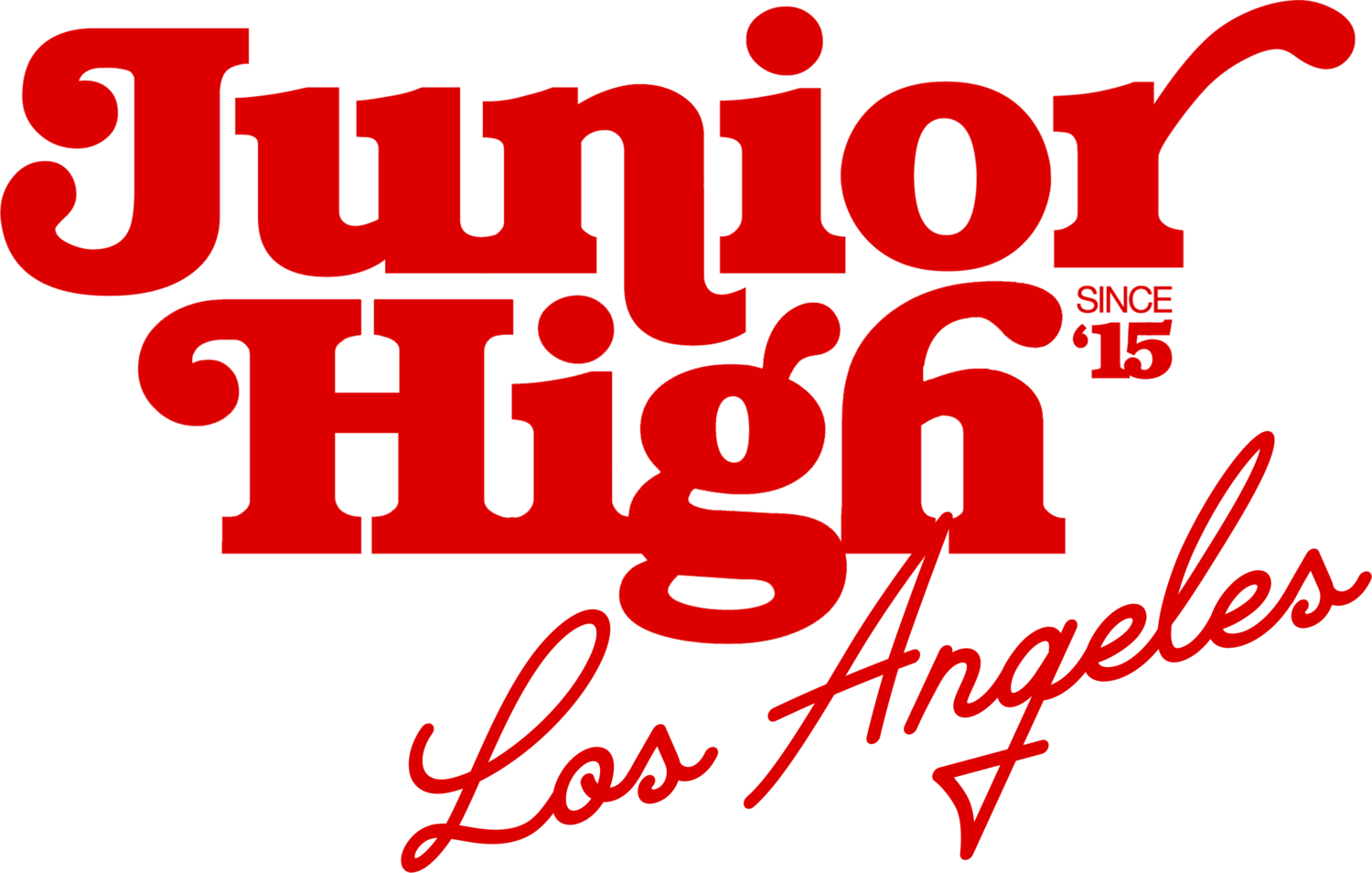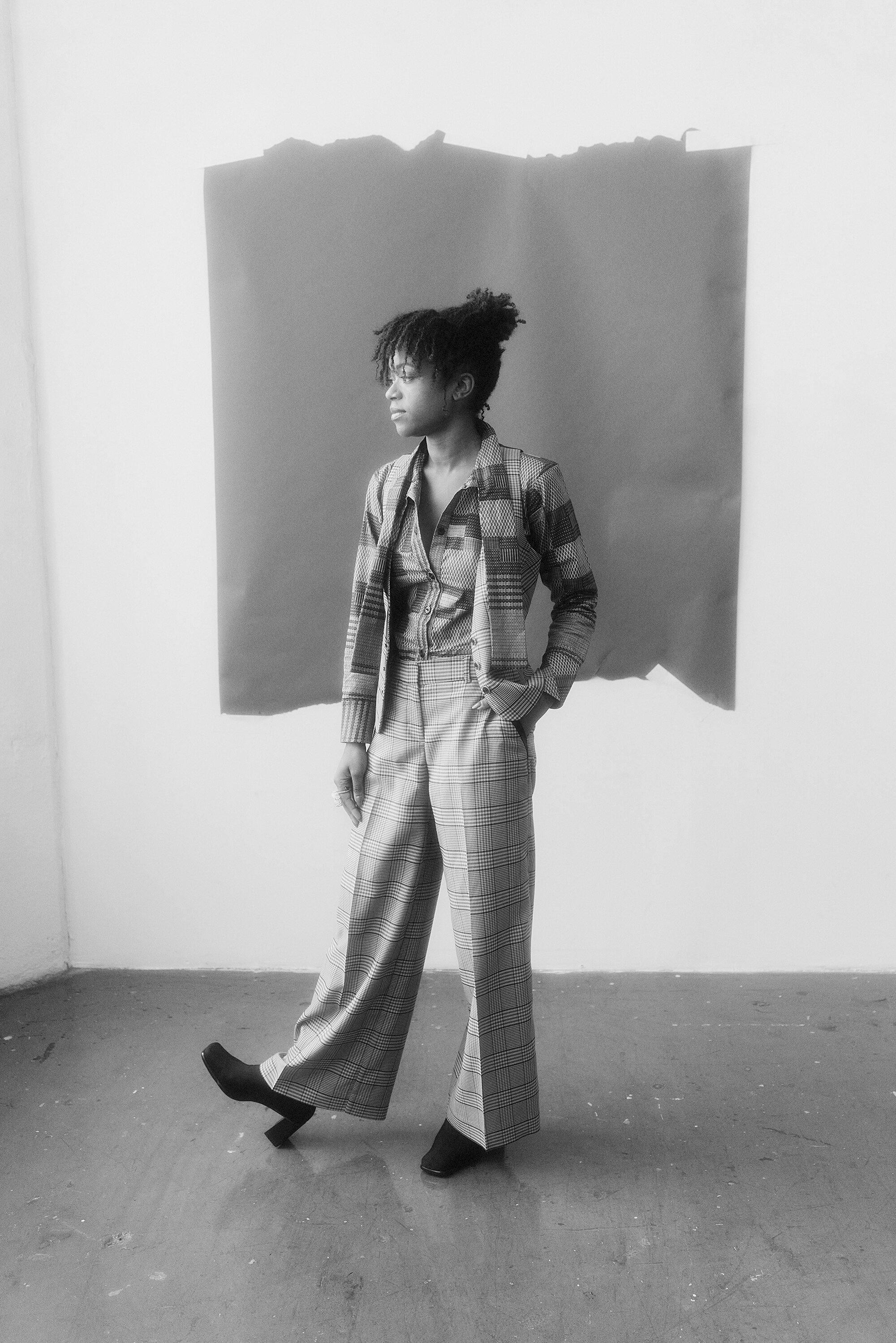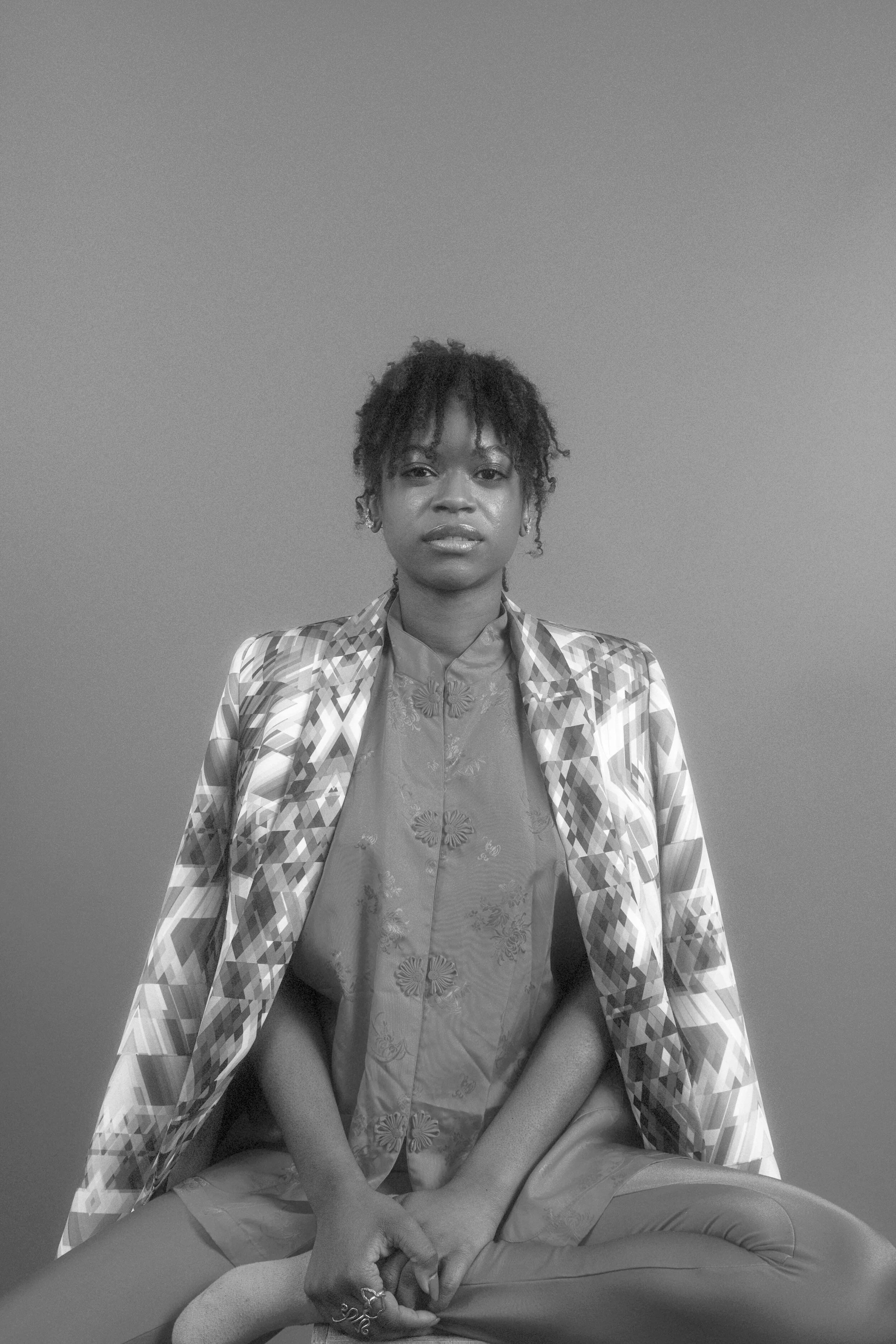Chelsea Von Chaz
⤏ IN CONVERSATION WITH MARITZA LUGO
⤏ PHOTOS BY NOLWEN CIFUENTES | MAKE-UP BY BRIDGET O’DONNELL | STYLING BY VARA AYANNA | PHOTO ASSISTING BY ANDREW NARVAEZ
⤏ ORIGINALLY PUBLISHED MARCH 2019
Chelsea Von Chaz is the proprietor and creator of Happy Period, a charitable organization that addresses access to menstruation products. The hyper-focus of Happy Period is for those who are low income or experiencing homelessness to readily maintain their personal hygiene and eliminate the stigma felt through menstruation.
Chelsea is a force to be reckoned with. Her drive and determination in making Happy Period a sanctuary for those who need access to menstrual care is what makes her organization vital to communities nationwide. Her ability to cut through bullshit is what makes her vital to the rest of us.
MARITZA: Why do you think it was so important to create Happy Period?
CHELSEA: Nobody else was going to do it if I didn’t do it!
M: Where did you get the idea to just start it?
C: I didn’t get the idea from anywhere per se, it just came to me after I saw someone who looked like me — who happened to be homeless — walking around with blood-stained underwear.
M: My favorite thing about Happy Period is its mission statement, “For those that would otherwise go without.” You’re obviously leading the charge and as we’ve seen time and time again; Black women are usually pioneers in local community work. I guess my question is, as a Black female pioneer, what advice would you have for non-women-of-color who are not getting involved?
C: I guess I would say, get the fuck out the way. I personally only see us making changes or getting things done. I can really only speak about what I see in my life — and that isn’t to say there aren’t non-women-of-color out there doing work — but if you’re not helping, then I would say get out of the way for those who are putting in the work. You can be about it and talk about it but it’s so much more important to just do the work.
M: I love that you have every bit of conviction in that statement and I couldn’t agree more. How long has Happy Period been around?
C: 4 years!
M: Amazing! Do you encounter a lot of period stigmas with the people you meet on a regular basis?
C: I mean, yeah, we’re working on it, but it’s not gone. We deal with that all the time and not just with the people we’re helping, but also with those that are doing the helping. Sometimes, it all comes from the context of negative experiences and those are real issues that people don’t think about when it comes to menstruation stigma or shame. I have had people ask, “Why am I uncomfortable with calling it my ‘period?’ Where is that coming from? Is it learned behavior? Maybe my mom was negative about her’s.” I mean, it also comes down to those people who don’t even see it as a social issue. They might also just feel shame or embarrassment because it has to do with a bodily fluid.
“I have had people ask, ‘Why am I uncomfortable with calling it my period? Where is that coming from?’”
M: What do you think about people who call their periods by nicknames? Like “Aunt Flow?”
C: I don’t think giving it a nickname is a bad thing. I think that’s kind of a personal thing. I think some people give it a different name to connect to their period. I know a lot of people who call it their “moon time” and I think that’s so much cooler because it’s aligned to nature. It’s definitely more in tune with a cosmic feel to it. I love that.
M: What’s the overall age range that Happy Period helps?
C: Honestly, it’s everyone. It could start as young as girls at nine or teenage trans boys of the same age. We also go as high as women in their forties. More than likely, they’re 21-45 years old. It’s always difficult to tie down as kids can get their periods at a really young age.
M: With younger kids and teens, do you see Happy Period having a school presence?
C: We give a lot to schools now. We have a lot of schools reaching out for us to help them with their low income students or whoever. A lot of the time, they’re middle schools and high schools. We get a lot of teenagers, some who are low income or experiencing homelessness.
M: What is the greatest feeling you get from creating and operating Happy Period?
C: I mean, it’s my own shit! It’s like I have a four year old kid! I raised it. I can teach it things and mold it. I can change and modify it. I make mistakes and learn from those mistakes to move forward. It’s mine. I’m creating something without someone nitpicking and putting me in a box with what they think an artist or a creative is. It’s entrepreneurship: the ups, the downs, the bullshit — it’s the process.
M: Does Happy Period have any permanent locations for those that want to stop by and drop off donations?
C: No, we actually encourage everybody — instead of donating to us — to head to the streets or their local shelters. I say get out of that “sending or dropping off items to places” mentality and really find your nearest action center. It’s a loss of money and time when the average person sends in their donation when they could just go down the street and find someone to give those items to. We’re always thinking about time. At any given time, someone is on their period, so find them and help them out. We’re actively trying to remove the middleman and help those who don’t have access to immediate menstrual care, get it.
M: How could someone get involved with Happy Period? Do you take volunteers?
C: Yes! We are now in 32 different cities! There are groups of girls that host donation drives in their communities. The best thing to do is visit our website and sign up for fundraisers! You could even become an Ambassador to do the exact same thing and create the model for your own community. You could be the one hosting an event at school, work, or church. You also get to decide where the donations go. We don’t. It is all to help local activism get up and running to help everyone within its reach. It’s very grassroots on that level.
M: Any tips for those who just want to take the initiative on their own?
C: We encourage everyone to get involved on a local level. Host your own donation drive and be your own role model. Make period kits, make simple care packages. You could even organize the donation bins so you can drop them off at local shelters.
M: What does Happy Period need to move into the next phase? What would you like to see happen next?
C: As of now, we are definitely seeking funding to create even more inclusive programs. Our main future goal is a mobile shower trailer that can be pulled around the city and support a lot of shelters. We’d love to start it right here in Los Angeles and make showering a possibility for those who don’t have regular access to it.
⤏ BUY THE PRINT EDITION OF JR HI THE MAGAZINE | ISSUE 005 HERE.
⤏ MARITZA LUGO (SHE/HER) IS A SELF TAUGHT ILLUSTRATOR AND ARTIST FROM NEW YORK CURRENTLY LIVING IN LOS ANGELES. HER CAREER TOOK OFF WHEN SHE STARTED DRAWING THE 'ILLUSTRATED TWEET OF THE DAY' FOR @HELLOGIGGLES. SINCE THEN, MARITZA'S WORK HAS BEEN FEATURED ON @FORBES, @BROADLY, @WOMENINTHEWORLD (NYT), @NERDISTAND OTHER SITES. MARITZA'S WORK EXPLORES THEMES RELATED TO FEMINISM, POP CULTURE AND LIFE IN GENERAL


